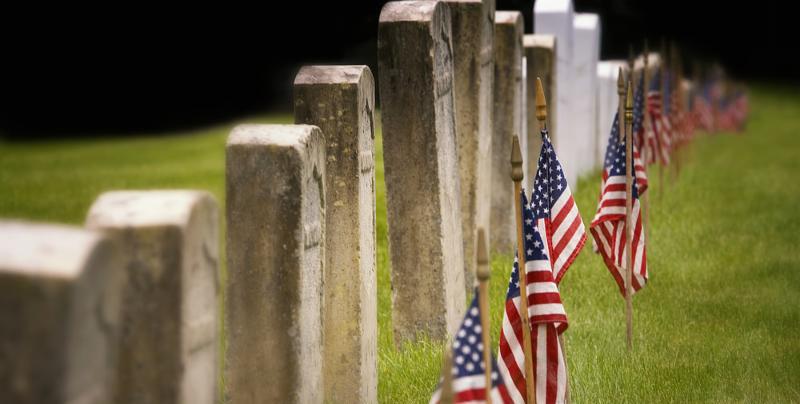| |
 |
August: I Can See Again!!
Nothing is as precious as sight. Mine was slowly slipping away because of two cataracts, one of which was causing double vision. I looked up at the beautiful night sky and there were two moons! All the stars were doubled as well! It took me a while to figure out that it was the right eye that was the culprit. I visited my ophthalmologist, Dr. Carl Senft, who had me look at the Snellen chart through a pin hole. The doubling went away, suggesting that the problem was in the lens, where the cataract was lurking.
Dr. Senft recommended extraction of the cataract and replacement with an artificial lens. I have to admit that I was a little nervous as the excellent staff at SeaShore Surgical in Brick prepared me for surgery. All had gone according to plan. Dr. Senft's coordinator saw to it that my eye drop prescriptions were sent to Campbell's Pharmacy well in advance. When I got the call from Campbells that my prescriptions were ready, I knew that my adventure was about to begin. I had instilled the drops faithfully and had nothing to eat or drink on the morning of surgery but for my blood pressure meds and a small sip of water. Now it was time to go into the operating room.
All I could think of was my
UPENN
physician daughter chastising me for not going to
Wills Eye
in Philly where I was already a patient.
"Your going to have your eye surgery at the shore?", she said in disbelief. "Brick? Where's that?" It did seem a little strange. Here I was about to have my surgery 85 miles from the greatest eye hospital in the world. But as I explained to my incredulous daughter, I had referred many satisfied patients to Dr. Senft. How could I not go myself? Anyway, Dr. Senft expertly removed my troublesome cataract and replaced it with a crystalline artificial lens. I couldn't wait to look up at the evening sky. Sure enough, one moon, only one. When I reported this to Dr. Senft during my follow up visit, he said, "That's good. There is only one." Hard man to impress, Dr. Senft. I hope he knows how much good he does and how grateful I am for his expert care!!
John A. Schmidt, MD
Internist
|
 |
John McCain, Patriot (1936-2018)
One of the reasons this newsletter is late is that I was anxious to report on the funeral ceremony of
Senator John McCain held at the majestic
National Cathedral in Washington, DC, on Saturday, September 1. Designed by Mr. McCain himself, it was his last great contribution to our nation. In attendance, by personal invitation, was a broad cross section of great Americans, including presidents
George W. Bush,
Barack Obama, and
Bill Clinton, their first ladies,
Laura,
Michelle, and
Hillary, former vice president,
Joseph Biden, and former senators
Bob Dole, also a wounded-in-action veteran, and his wife,
Elizabeth, former secretary of state,
John Kerry, and the current governor of Ohio and future president,
John Kasich. Among those eulogizing the Senator were his daughter,
Meghan, George Bush, Barack Obama, one of the
three "amigos," former Senator
Joseph Lieberman, and former secretary of state,
Henry Kissinger. All spoke of his warrior spirit and passionate dedication to the principles that have made America great, especially his absolute faith in
"All men are created equal," how he despised despots and bullies, and his conviction that compromise was the key to solving problems. As the Glee Club from the
US Naval Academy sang a spirited rendition of the
Battle Hymn of the Republic and
Renee Fleming sang
"Oh Danny Boy," tears welled up in Mrs. McCain's eyes and mine. The scripture readings were so appropriate, especially this one from the
Book of Wisdom 3:1-9, for a a naval airman who had suffered in the
"Hanoi Hilton" for six years, several of them in solitary confinement, where he was tortured and brutalized: "For if before men, indeed they be punished, yet is their hope full of immortality; chastised a little, they shall be greatly blessed, because God tried them and found them worthy of himself."
Father Edward Reese, SJ, former president of
Brophy College Preparatory School in Phoenix, where McCain's navy sons, Jack and Jimmy attended high school, alluded to the senators passion for justice by quoting a poem by
Gerard Manley Hopkins, SJ, entitled
"As Kingfishers Catch Fire." The poem says "The just man justices..." Indeed!!
In the broadway musical,
"Hamilton," the character
George Washington, says, "Dying is easy, living is harder." Life was hard for John McCain and he made the most of it. Defeated in battle and in his bid to become president, he rose to the House and six terms in the Senate. His hero was
Robert Jordan, the American volunteer in
Hemingway's novel,
"For Whom the Bell Tolls," who dies in a rear guard action at the hands of fascists during the
Spanish Civil War. Like Jordan, McCain was a warrior who was willing to risk and sacrifice self for a cause greater than himself. His funeral and the life it celebrated were a resounding rebuke to the partisan politics and mean spiritedness that have unfortunately gripped our country. God Bless You, John McCain! Indeed, He already has and everyone of us who admire this authentic American Hero!
|
 |
Aspirin, ARRIVE and ASCEND!!
The use of aspirin in primary prevention, on the other hand, is nuanced. ARRIVE was conducted between July 2007 and November 2016 and enrolled 12,000 patients in seven countries at more than 500 study sites. For the primary endpoint--time to first occurrence of cardiovascular death, myocardial infarction (heart attack/MI), unstable angina, stroke, or transient ischemic attack (TIA)--there was no significant difference between the groups assigned to aspirin versus
placebo. Overall rates of gastrointestinal bleeding were low, less than 1%, but twice as high in the aspirin group than in the placebo group, a statistically significant difference. If one stops here, you might conclude that taking aspirin for primary prevention is not a good idea. But now comes the big AH HAH finding: among patient who actually took aspirin compared to those who did not, aspirin was associated with a 47% decreased risk of first MI, a major benefit.
As summarized on the
American College of Cardiology (ACC) web site, the second study, ASCEND, compared outcomes in 15,480 diabetic patients forty years of age or older, with no known cardiovascular disease, making this a primary prevention trial. Half received 100 mg of aspirin daily while the other half received placebo. The median duration of follow-up was 7.4 years. The primary efficacy outcome (
vascular death, myocardial infarction, or stroke/transient ischemic attack) occurred in 8.5% of the aspirin group compared with 9.6% of the placebo, a 12% reduction. The primary safety outcome (
intracranial bleeding, gastrointestinal hemorrhage, or
sight-threatening eye bleeding) occurred in 4.1% of the aspirin group compared with 3.2% of the placebo group, a 29% relative increase in major bleeding events compared with placebo, mainly due to GI hemorrhage. The authors conclude that the benefit of aspirin was largely negated by excess bleeding. The ACC concluded, "the use of aspirin among diabetics with no known cardiovascular disease needs to be individualized."
|
Guidelines for Primary Prevention from the United States Preventive Services Taskforce (USPSTF)
The
USPSTF has modified its guidance in light of these and other aspirin primary prevention trials as follows:
In adults aged 50-59 years of age with a 10-year cardiovascular risk greater than or equal to 10%, USPSTF recommends initiating
low-dose aspirin for the primary prevention of cardiovascular disease and
colorectal cancer in patients who are not at increased risk of bleeding, have a life expectancy of at least ten years, and are willing to take low-dose aspirin daily for at least 10 years.
In adults aged 60-69 years of age with a 10-year cardiovascular risk greater than or equal to 10%, USPSTF recommends initiating low dose aspirin for the primary prevention of cardiovascular disease and colorectal cancer in patients who are not at increased risk of bleeding, have a life expectancy of at least 10 years, and are willing to take low dose aspirin for at least ten years.
The USPSTF says data are insufficient in adults younger than 50 years of age and adults 70 and older.
The heart risk calculator used by the USPSTF can be found at
cvriskcalculator.com. Calculate your 10-year heart risk today to help decide if you should take aspirin for primary prevention!
MY TAKE: I would rather treat a GI bleed, nose bleed, and/or bruising than a heart attack or stroke any day of the week! Most bleeding, especially GI bleeding, is usually easily managed and patients recover completely. Heart Attack and Stroke, on the other hand, can be fatal, and often have long lasting life-altering effects that cannot be reversed. Keep this in mind when you are deciding whether to take a daily low dose aspirin for primary prevention. Following the advice of the USPSTF, I take one everyday.
|
Omega-3 Fatty Acid Supplementation in Diabetes Mellitus Is Not Beneficial
As reported in the
New England Journal of Medicine on August 26, among patients with diabetes without evidence of cardiovascular disease (primary prevention), there was no significant difference in the rate of serious vascular events between those who were assigned to receive
n-3 fatty acid supplementation as compared to those who received placebo.
|
I am happy to report that Ms. Stephanie Dudek has joined Val in our front office to serve you better!! Welcome, Stephanie!!
Our fifth grandchild was born after a harrowing cross town-trip from West Philly to the
Pennsylvania Hospital!! The UBER driver, who had four children of his own, ran red lights fearing that the baby would be born on his back seat! His instincts were correct. Our beautiful, healthy grandson, was delivered less than sixty minutes after our doctor daughter arrived in the hospital lobby. All of the staff, from the doorman to the labor and delivery nurses, were wonderful! Mother, Father, and child (and grands!) are all well, thank you! Praise God!!
Valerie, Stephanie, Ms. Clark, Ms. Catong, Ms. Sentner and I hope you had a wonderful
Labor Day and wish you and yours a successful school year!! My advice to returning students: "Study Hard!"
No doubt John McCain would agree!
|
|
| |
|
|
Board Certified Internist
Dr. Schmidt is one of the leading internists in Monmouth County offering
Medical Home
services.
He is an attending physician at Jersey Shore University Medical Center.
Dr. Schmidt is enrolled in the Maintenance of Certification Program of the American Board of Internal Medicine
Feel free to share this newsletter with your family and friends.
Register to receive our monthly newsletter
today!
Click here to learn more about the benefits of our
Follow My Health Patient Portal
and register today! You can make appointments and get your lab results on the portal. Simply ask Valerie to send you an invitation. Call 732-282-8166.
"As we celebrate Labor Day, we honor the men and women who fought tirelessly for workers' rights, which are so critical to our strong and successful labor force."
- Elizabeth Etsy
|
|